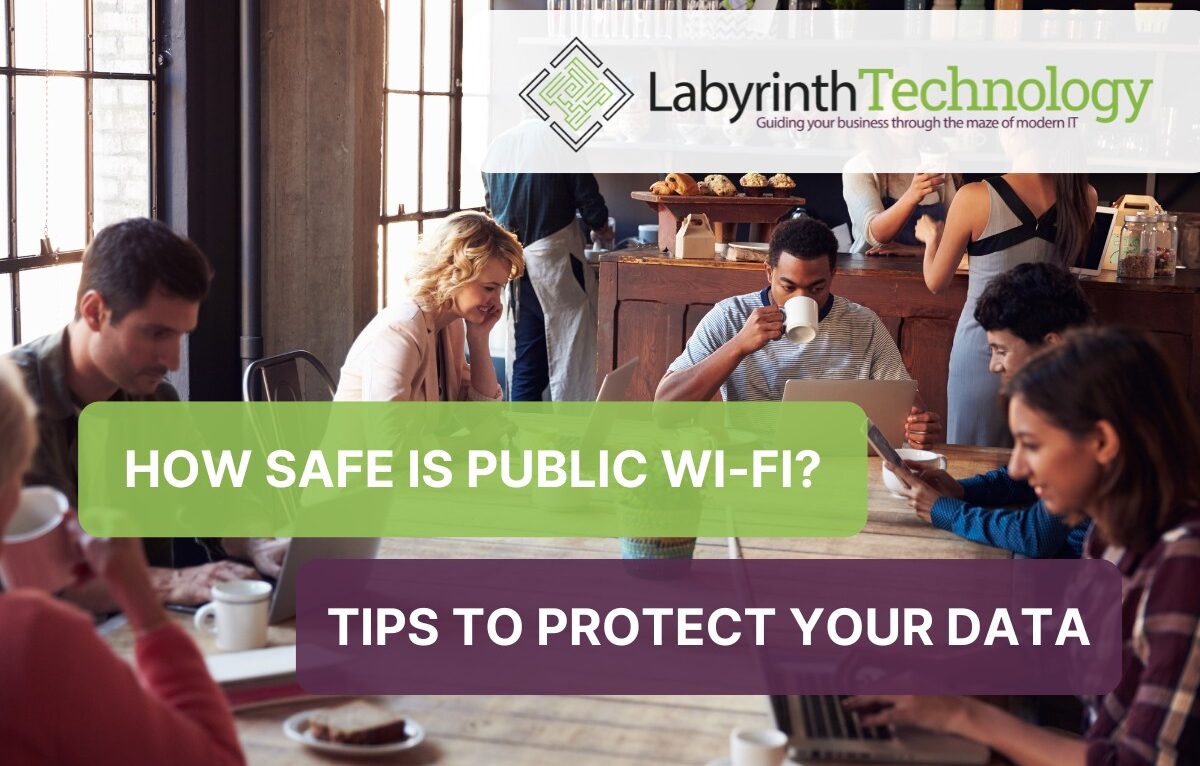
Public Wi-Fi networks, widely available in cafes, airports, and hotels, offer great convenience, allowing us to stay connected wherever we go. However, the safety of these networks is a significant concern. While these open connections provide easy internet access, they also pose numerous security risks. Public Wi-Fi networks typically lack strong encryption protocols, making it easy for cyber criminals to intercept the data being transmitted over these networks. This can include sensitive personal information such as passwords, financial data, and business communications. Given the open nature of public Wi-Fi, users are potentially exposing themselves to various security threats simply by connecting.
Here’s a comprehensive look at the dangers of public Wi-Fi and the best practices for ensuring your data remains safe.
1. Lack of Encryption
Most public Wi-Fi networks use minimal or no encryption, which means the data you send and receive may be visible to others on the same network. Cyber criminals can easily intercept this data to steal passwords, financial information, or even hijack your accounts.
2. Man-in-the-Middle Attacks
These occur when attackers insert themselves between the user and the connection point. Instead of communicating directly with the hotspot, you send your information to the hacker, who then relays it on. During this process, the attacker can access any information you send over the internet.
3. Rogue Hotspots
Hackers often set up fake Wi-Fi networks that look legitimate. Unsuspecting users might connect to these networks, thinking they are authentic, providing hackers with the opportunity to deploy malware or steal data directly from their devices.
4. Malware Distribution
Public Wi-Fi is an easy avenue for cyber criminals to spread malware. By exploiting security vulnerabilities on your device, they can install malware without your knowledge, potentially leading to significant data loss or damage.
5. Network Sniffing
Hackers can use software tools to capture data being sent over a network. These tools can analyze network traffic and extract information like emails, passwords, and other sensitive data that are transmitted unencrypted.
Using public Wi-Fi comes with considerable security risks, so it is generally advisable to avoid using these networks for sensitive activities. However, if you must use public Wi-Fi, there are precautions you can take to enhance your security:
1. Use a Virtual Private Network (VPN)
A VPN encrypts your internet traffic, making it much harder for hackers to intercept your data. Always connect to a VPN before accessing any sensitive information or logging into accounts over public Wi-Fi.
2. Ensure Websites are HTTPS Encrypted
Before entering any personal information, verify that the website’s URL begins with “https://” and has a padlock icon in the address bar. This signifies that the website is secure and encrypts the data transmitted to and from it.
3. Enable Two-Factor Authentication (2FA)
2FA adds an extra layer of security by requiring a second form of verification (typically a code sent to your phone) in addition to your password. Even if a hacker steals your password, they won’t easily access your accounts without this second code.
4. Keep Your Antivirus Software Up to Date
Ensure your antivirus software is current and active. It can detect and prevent malware from being installed on your device.
5. Avoid Accessing Sensitive Information
Refrain from logging into banking apps or making financial transactions over public Wi-Fi. Wait until you can use a secured network to perform these activities.
6. Forget the Network After Use
Once you are done using a public Wi-Fi network, disconnect and tell your device to forget the network. This prevents your device from automatically connecting in the future, reducing the risk of unintended connections.
7. Turn Off Sharing
When connected to any public network, it’s crucial to disable sharing settings on your device. On Windows computers, you can do this from the Network and Sharing Centre by turning off file and printer sharing and network discovery. On Macs, go to System Preferences, then Sharing, and uncheck all options. This prevents others on the same network from accessing your files or logging into your device remotely.
While public Wi-Fi is convenient, its security risks cannot be ignored. By following these best practices, you can significantly reduce the chances of compromising your personal and business data.
At Labyrinth Technology, we are committed to providing robust cyber security solutions tailored to both individuals and businesses. We believe in empowering our clients with the knowledge and tools they need to safeguard their digital environments effectively. If you’re looking for expert advice and innovative solutions to protect your data, don’t hesitate to reach out.
Empowering London Businesses with Efficient IT Solutions to Save Time and Stay Ahead of the Competition.